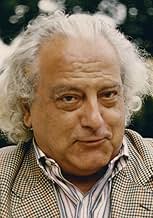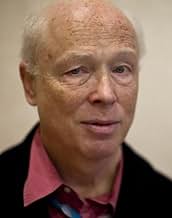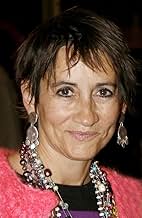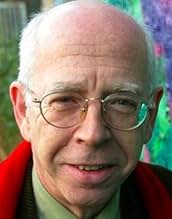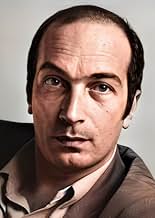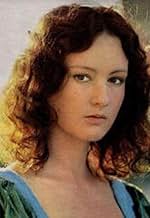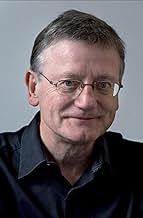IMDb RATING
7.7/10
6.9K
YOUR RATING
The chauvinist Alexandre balances relationships with several women in the post-1968 intellectual scene of Paris.The chauvinist Alexandre balances relationships with several women in the post-1968 intellectual scene of Paris.The chauvinist Alexandre balances relationships with several women in the post-1968 intellectual scene of Paris.
- Awards
- 3 wins & 1 nomination
Jean-Claude Biette
- Un homme aux Deux Magots
- (uncredited)
Jean Douchet
- Un homme au Café de Flore
- (uncredited)
Bernard Eisenschitz
- Maurice
- (uncredited)
Jean Eustache
- Le mari de Gilberte
- (uncredited)
- …
Noël Simsolo
- Un homme au Café de Flore
- (uncredited)
- Director
- Writer
- All cast & crew
- Production, box office & more at IMDbPro
Storyline
Did you know
- TriviaThis film is based on the real-life relationship between director Jean Eustache and actress Francoise Lebrun (who plays Veronika). The character based on her is named Gilberte in the movie and is played by Isabelle Weingarten.
- GoofsAlexandre can be seen drinking a bottle of 1970 Gevrey-Chambertin, which would have been far too expensive for him to have purchased. This error is illuminated by his notable lack of money during the cafe scene, in which his date pays for his bill.
- ConnectionsFeatured in The Story of Film: An Odyssey: European New Wave (2011)
- SoundtracksIch weiß, es wird einmal ein Wunder gescheh'n
Written by Bruno Balz, Michael Jary and Ralph Benatzky
Performed by Zarah Leander
Featured review
... is because of films like this.
Don't get me wrong. I like independent cinema, and particularly like good foreign films, but this film could have been cut by at least an hour.
I'll explain.
The film revolves around a self centered young man who professes he loves certain women, but is really looking for someone to love him. Enter a woman who doesn't love herself, but finds this same young man, taps his energy, and both wind up "flowering" for it.
This movie revolves around the sexual morays and politics of a small group of Parisians. The film starts out very strong. Actors present characters in an extended first act that we would like to get to know, but, unfortunately this pic becomes the poster boy for the proverbial "long boring French film" replete with characters who light up cigarettes and talk in either cafés or materially spartan rented rooms about how life should be different, and what it all means. Toss in an Oedipal complex/undercurrent, and you have the quintessential French avante-garde flick.
Huh.
Inspite of this there's some good material in this film, but director Jean Eustache (probably to make up for lack of scheduling and some technical aspects) throws a lot of dialog at the audience that would've have been better served with some visual cues.
All in all it shows how messed up an certain sect of French culture really is, and, perhaps ironically, drives home a realist message regarding the act of coupling.
Technically it's bare bones. Lots of natural lighting is fused with high contrast B&W cinematography, and to add to the rugged feel of the film the scratch track is used. Little to no looping of dialog. You can hear what pros call "room tone" as it was actually recorded during filming.
I could go off the deep end and call this film self-indulgent, pretentious et al, but will say instead that the exposition given to the story was "over-exposed" (for lack of a better term). The symbolism is fine, but a lack of visuals and a borderline in-you-face delivery of certain dialog, hampers what could have been a much better film. By that I don't mean commercially successful nor accessible, but a film that could have delivered the same gists, character and message without the flaunting its strive for artistic excellence.
Don't get me wrong. I like independent cinema, and particularly like good foreign films, but this film could have been cut by at least an hour.
I'll explain.
The film revolves around a self centered young man who professes he loves certain women, but is really looking for someone to love him. Enter a woman who doesn't love herself, but finds this same young man, taps his energy, and both wind up "flowering" for it.
This movie revolves around the sexual morays and politics of a small group of Parisians. The film starts out very strong. Actors present characters in an extended first act that we would like to get to know, but, unfortunately this pic becomes the poster boy for the proverbial "long boring French film" replete with characters who light up cigarettes and talk in either cafés or materially spartan rented rooms about how life should be different, and what it all means. Toss in an Oedipal complex/undercurrent, and you have the quintessential French avante-garde flick.
Huh.
Inspite of this there's some good material in this film, but director Jean Eustache (probably to make up for lack of scheduling and some technical aspects) throws a lot of dialog at the audience that would've have been better served with some visual cues.
All in all it shows how messed up an certain sect of French culture really is, and, perhaps ironically, drives home a realist message regarding the act of coupling.
Technically it's bare bones. Lots of natural lighting is fused with high contrast B&W cinematography, and to add to the rugged feel of the film the scratch track is used. Little to no looping of dialog. You can hear what pros call "room tone" as it was actually recorded during filming.
I could go off the deep end and call this film self-indulgent, pretentious et al, but will say instead that the exposition given to the story was "over-exposed" (for lack of a better term). The symbolism is fine, but a lack of visuals and a borderline in-you-face delivery of certain dialog, hampers what could have been a much better film. By that I don't mean commercially successful nor accessible, but a film that could have delivered the same gists, character and message without the flaunting its strive for artistic excellence.
- How long is The Mother and the Whore?Powered by Alexa
Details
- Release date
- Country of origin
- Official sites
- Language
- Also known as
- Die Mama und die Hure
- Filming locations
- Café Les Deux Magots - 6 place Saint-Germain-des-Prés, Paris 6, Paris, France(Alexandre's usual café)
- Production companies
- See more company credits at IMDbPro
Box office
- Gross US & Canada
- $40,555
- Opening weekend US & Canada
- $5,135
- Jun 25, 2023
- Gross worldwide
- $47,344
- Runtime3 hours 30 minutes
- Color
- Sound mix
- Aspect ratio
- 1.37 : 1
Contribute to this page
Suggest an edit or add missing content


